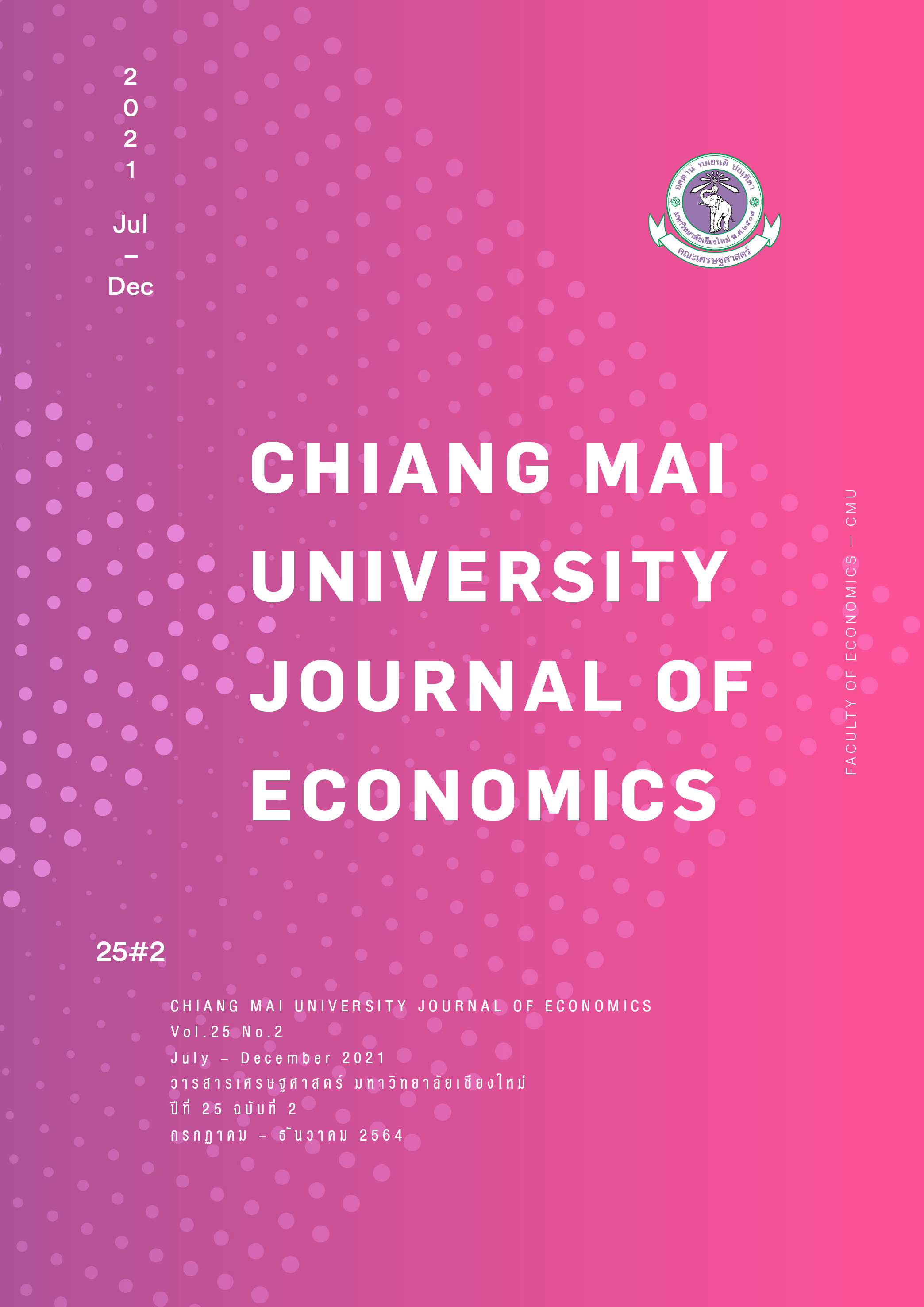The Effective Alternative Energy Management Strategies for Thailand
Keywords:
Effective Management Strategies, Alternative Energy.Abstract
Nowadays, “energy” can be considered as an important factor in human life both in terms of utilities, electrical systems, fuel, vehicles, food production, agricultural, and various business industries all require almost all energy. World population growth, technological and innovation advances, and the increasing energy demand makes the world face a major crisis called “Energy Crisis”. Predicting that within the next few decades, the oil will run out of the world, which requires the use of other energy to replace oil in the future. This paper presents a summary report of the energy situation for the year 2019, summary report of Thailand's energy situation, effective alternative energy management strategies, state policy measures on alternative energy. Moreover, summary and recommendations for energy security for Thailand. Therefore, it is necessary to find other types of energy to replace oil, such as solar energy, wind energy, hydropower, geothermal energy, and biomass energy. For these reasons, Thailand has an urgent need for energy development, instead of oil. The government, therefore, needs to have an energy strategy to be used as a concrete measure for energy security for Thailand.
References
พงษ์ศักดิ์ ผกามาศ และ ชูเกียรติ ช่วยเพชร. (2558). พลังงานทดแทน...พลังงานทางเลือกของประเทศไทย. วารสารเสนาธิปัตย์, 64: 86-9.
ศูนย์เชื้อเพลิงและพลังงานจากชีวมวล จุฬาลงกรณ์มหาวิทยาลัย. (ม.ป.ป.). (2564). ศักยภาพชีวมวลในประเทศไทย. สืบค้น 15 มีนาคม 2564, จาก http://www.iscisaraburee.sc.chula.ac.th/2017/index.php/2016/06/06/i-sink-under-the-weight-of-the-splendour/
เอกสารทบทวนเชิงนโยบายด้านความมั่นคง. (2560). นโยบายพลังงานทดแทนเพื่อความมั่นคงของชาติ (Renewable Energy for National Security). วิทยาลัยป้องกันราชอาณาจักร สถาบันวิชาการป้องกันประเทศ. NDC Security Review. 1(1): มกราคม 2560.
Badasyan, N. (2018). Project feasibility analysis economic model for private investments in the renewable energy sector. Built Environment Project and Asset Management. 8(2): 215-230.
Chaisanit, S. and Phakamach, P. (2018). A Review Report: Supplying Energy from Renewable Energy Around the World. International Journal of Applied Environmental Sciences. 13(3): 309-321.
Dell'Anna, F., Bottero, M., Becchio, C., Corgnati, S.P. and Mondini, G. (2020). Designing a decision support system to evaluate the environmental and extra-economic performances of a nearly zero-energy building. Smart and Sustainable Built Environment. 9(4): 413-442.
Ellabban, O.H. and Blaabjerg, F. (2014). Renewable Energy Resources: Current Status, Future Prospects and their Enabling Technology. Renewable and Sustainable Energy Reviews. 39: 748–64.
Heinicke, M. (2015). Framework for the use of landscaping waste for alternative energy generation. International Journal of Energy Sector Management. 9(1): 57-76.
Lühn, T., Schmidtmann, G. and Geldermann, J. (2018). Identification of sustainable expansion alternatives for heterogeneous grid topologies. International Journal of Energy Sector Management. 12(1): 44-66.
Mark, Z.J. (2015). 100% Clean and Renewable Wind, Water, and Sunlight (WWS) all-sector energy roadmaps for the 50 United States. Energy and Environmental Science. 7: 20-38.
Ren21. (2019). Renewables 2019 Global Status Report. Retrieved March 28, 2021, Available from http://www.ren21.net/status-of-renewables/global-status-report
Salim, A.M. and Alsyouf, I. (2020). Development of renewable energy in the GCC region: status and challenges. International Journal of Energy Sector Management. 14(6): 1049-1071.
Urban, F. and Mitchell, T. (2011). Climate Change, Disasters and Electricity Generation. London: Overseas Development Institute and Institute of Development Studies.
Wikipedia. (2564). Renewable Energy. สืบค้น 15 มีนาคม 2564, จากhttps://en.wikipedia.org/wiki/Renewable_energy
Downloads
Published
Issue
Section
License
All opinions and contents in the CMJE are the responsibility of the author(s). Chiang Mai University Journal of Economics reserves the copyright for all published materials. Papers may not be reproduced in any form without the written permission from Chiang Mai University Journal of Economics.
ข้อคิดเห็นที่ปรากฏและแสดงในเนื้อหาบทความต่างๆในวารสารเศรษฐศาสตร์มหาวิทยาลัยเชียงใหม่ ถือเป็นความเห็นและความรับผิดชอบโดยตรงของผู้เขียนบทความนั้นๆ มิใช่เป็นความเห็นและความรับผิดชอบใดๆของวารสารเศรษฐศาสตร์ มหาวิทยาลัยเชียงใหม่
บทความ เนื้อหา และข้อมูล ฯลฯ ในวารสารเศรษฐศาสตร์มหาวิทยาลัยเชียงใหม่ ถือเป็นลิขสิทธิ์เฉพาะของคณะเศรษฐศาสตร์มหาวิทยาลัยเชียงใหม่ หากบุคคลหรือหน่วยงานใดต้องการนำทั้งหมดหรือส่วนหนึ่งส่วนใดไปเผยแพร่ต่อหรือเพื่อกระทำการใดๆ จะต้องได้รับอนุญาตเป็นลายลักษณ์อักษร จากวารสารเศรษฐศาสตร์ มหาวิทยาลัยเชียงใหม่






